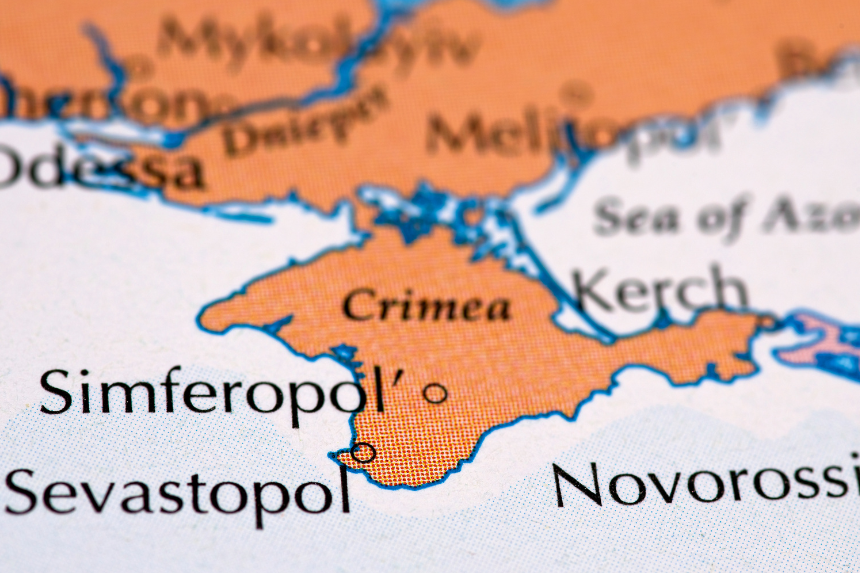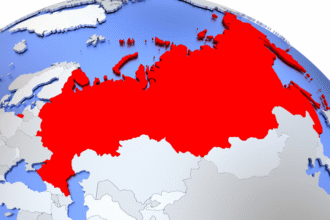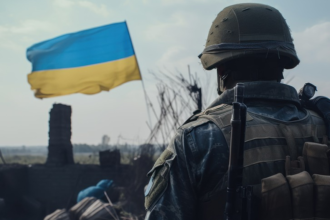Since 2014, the conflict in the Crimea has fundamentally defined geopolitics. Russia’s takeover of Crimea not only raised hostilities between Russia and Ukraine but also seriously challenged international law’s guiding ideas of peace and justice. The conflict still shapes the future of the area, therefore impacting territorial integrity, world diplomacy, and the idea of sovereignty.
The history of the Crimea conflict, its consequences on world affairs, and the several efforts at peace are discussed in this paper. With far-reaching effects beyond Ukraine’s boundaries, the Crimea crisis is among the most complicated and divisive territorial disputes in the contemporary world.
Why Does It Matter and What Set Off the Crimea Conflict?
The confrontation in the Crimea started in February 2014 when Russia took over important Crimea infrastructure under unidentified military personnel. This quick and clandestine operation resulted in Russia’s disputed annexation of Crimea based on an internationally denounced as illegitimate referendum.
Russia stated that the people of Crimea had voted mostly to join the Russian Federation; the international community, notably the United Nations General Assembly, refuted this assertion, therefore confirming Ukraine’s sovereignty over the peninsula.
The annexation of Crimea took place against a larger power vacuum engulfing Ukraine. Following widespread demonstrations over his government’s rejection of an association agreement with the European Union, Viktor Yanukovych, Ukraine’s pro-Russian president, was removed early in 2014. This opened a window of opportunity to establish its influence in Crimea, a territory with a sizable Russian-speaking population and vital military value.
For Ukraine, Crimea is a fundamental component of its territorial integrity; its loss seriously compromises national sovereignty. Particularly for the Crimean Tatar people who have experienced persecution since the annexation, the struggle in the Crimea is testing Ukraine’s geographical limits, therefore generating not just political unrest but also a humanitarian crisis.
In what ways can the conflict in the Crimea compromise international law and world peace?
The situation in the Crimea goes well beyond a territorial argument between Russia and Ukraine. It poses a major threat to international law as well as the values that have supported world peace since World War II. The main concern is Russia’s transgression of Ukraine’s territorial integrity.
The United Nations Charter forbids the acquisition of territory by force, hence the annexation of Crimea was obviously a flagrant disrespect for it. Should Russia’s actions be approved as justified, it would create a risky precedent for other territorial conflicts across the globe and inspire like behavior by nations trying to increase their boundaries.
Countries with long-standing border conflicts, for instance, could use this as an illustration of how military might help to acquire territory. Acceptance of Russia’s actions in Crimea can cause instability in areas all around, including Eastern Europe and beyond, as well as the South China Sea.
Moreover, the conflict in the Crimea has revealed the shortcomings of international bodies such as the United Nations, which has struggled to act decisively to undo the annexation. Russia has kept control over Crimea despite strong criticism and penalties levied by Western nations, which raises some doubts about the efficacy of international law in discouraging forceful behavior.
How Do Global Powers View the Crimea Conflict?
Often based on their strategic goals, alliances, and geopolitical concerns, global countries have taken varied positions on the Crimea dispute. Strong in their support of Ukraine, the United States and the European Union have imposed economic penalties on Russia to coerce the Kremlin into undoing the acquisition of Crimea.
John Kerry, the U.S. Secretary of State, described Russia’s conduct as a “brazen act of aggression” in 2014, and the U.S. and the EU slapped sanctions aiming at important spheres of Russian economy. Russia has suffered major economic consequences from these sanctions, mainly in the financial and energy sectors, but they have not resulted in the Russian army leaving Crimea.
Russia has countered that Crimea is historically and culturally part of its region. Citing the region’s importance to Russian national identity and strategic military value, Russian President Vladimir Putin has underlined often the close ties between Russia and Crimea. Russia sees the Soviet-era movement of Crimea to Ukraine in 1954 as an unfair deed, hence the annexation of Crimea was presented as a restoration of justice.
Crimea is a symbol of Russian pride and strength for many Russians, hence the annexation was generally welcomed at home. By means of several infrastructure projects, like the building of the Kerch Strait Bridge in 2018, which links Crimea to mainland Russia, Putin’s government has aimed to confirm its rule over Crimea. Read another article on What Sanctions Are Targeting Putin’s Administration?
What Difficulties Exist in Resolving the Conflict over Crimea?
Resolving the Crimea crisis has proved challenging since it addresses delicate concerns of national identity, territorial integrity, and world power dynamics. Any arrangement involving the surrender of Crimea would be interpreted by Ukraine as a breach of their constitution and a betrayal of their sovereignty.
Article 2 of Ukraine’s constitution especially says that the nation’s territory integrity is “indivisible and inviolable.” Any conversations on the status of Crimea thus become quite difficult since any change would need a national referendum and support from the Ukrainian parliament. Ukraine is unlikely to compromise on its claim to the peninsula given the constitutional obstacles and national attitude about Crimea.
Russia, too, struggles to keep control over Crimea. Although Russian people were first excited about the annexation, the long-term political and financial expenses of the occupation are great. The area is under severe sanctions, and the international community does not generally agree about its integration into Russia. Furthermore, the population of Crimean Tatars, who have been excluded since the annexation, keeps advocating for more respect for their rights and the restoration of their territory.
Does a road exist for resolving the Crimean conflict?
Though the situation in the Crimea is still unsolved, there are several roadways to a long-term fix. One scenario is ongoing diplomatic interaction whereby foreign intermediaries help Russia and Ukraine to have conversations. Only if both sides are ready to negotiate and if the international community can find a means to motivate Russia to hand over control over Crimea would this be feasible, though.
Ukraine’s road forward will probably be keeping pressure on Russia via international backing and sanctions while trying to establish closer political and economic relations with NATO and the European Union.
Russia, meantime, will have to determine if the expenses of occupying Crimea exceed the strategic and symbolic worth of the peninsula. Long term, the current state of affairs is unsustainable; so, maintaining long-lasting peace may depend on a settlement for the Crimea crisis that honors Russian security issues as well as Ukrainian sovereignty.
Finally, the road forward for the Crimea Conflict
One of the most difficult and important problems in modern world diplomacy still is the situation involving the Crimea conflict. Although both parties are firmly rooted in their beliefs, it is imperative to keep advocating for peaceful solutions honoring Ukraine’s sovereignty and supporting international law’s values.
The international community has to be involved supporting diplomatic initiatives and holding Russia responsible for its actions as the situation in Crimea keeps changing. Not only for Ukraine but also for the future of world peace and security is resolving the Crimea issue vital. The result will affect the world order permanently, hence nations all around must give diplomacy, respect of national sovereignty first priority.








